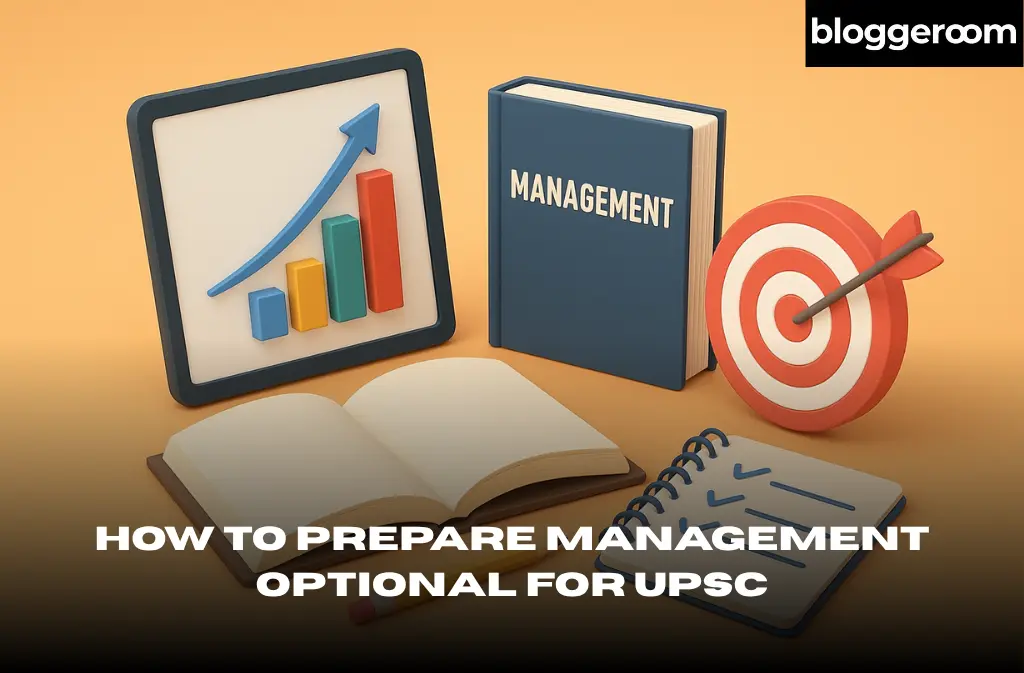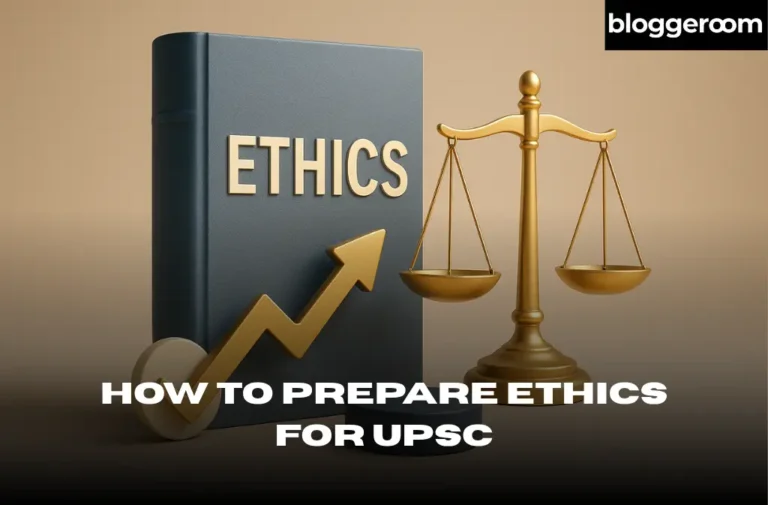How to Prepare Management Optional for UPSC
If you have a knack for logical thinking, case-based analysis, and understanding real-world business scenarios, Management can be one of the most rewarding optional subjects in the UPSC Civil Services Examination. It combines conceptual clarity with practical application, making it a scoring and relatively compact subject when compared to other optionals.
Why Management Optional is a Smart Choice
- Overlaps with Public Administration and General Studies (especially Ethics and Economy sections).
- Short, well-defined syllabus compared to other optionals.
- Conceptual clarity often translates into better performance in interviews and administrative roles.
- High scoring potential for candidates with business or commerce background.
Get Familiar with the Syllabus
Before you dive into preparation, go through the syllabus line by line. It’s divided into two papers:
- Paper I focuses on fundamentals – organizational behaviour, leadership, communication, motivation, and managerial functions.
- Paper II covers functional and strategic areas like marketing, human resource management, operations, accounting, finance, and international management.
Try mapping these topics with what you’ve studied during graduation or work experience. This will save time and help you identify areas that need deeper study.
Build a 12-Week Preparation Strategy
A well-structured study plan is essential to cover this vast yet manageable syllabus.
Here’s a sample 12-week roadmap:
- Weeks 1-4: Cover basics – evolution of management thought, functions of managers, leadership, and motivation theories.
- Weeks 5-8: Move to functional topics such as HRM, accounting, finance, operations, and marketing.
- Weeks 9-10: Focus on strategic management and case studies.
- Weeks 11-12: Revise, solve past papers, and practice timed writing daily.
Keep your notes short, bullet-based, and easy to revise. Visual aids like flowcharts and models (SWOT, Maslow’s hierarchy, Porter’s Five Forces, etc.) can make your answers stand out.
Best Books & Study Material
For this subject, it’s better to stick to a few standard sources and revise them multiple times. Some trusted references include:
- Organizational Behaviour – Stephen Robbins
- Marketing Management – Philip Kotler
- Human Resource Management – Aswathappa
- Financial Management – I.M. Pandey
- Strategic Management – Michael Porter or Thomas Wheelen & J. David Hunger
Alongside these, go through toppers’ notes and previous year question papers. Regularly connect theory with current corporate and policy examples for better retention.
Mastering Answer Writing
The real key to scoring well lies in your answer presentation. These papers often reward logical, concise, and example-backed responses.
Keep these points in mind:
- Start each answer with a short definition or concept.
- Add a relevant real-life example or business case (Indian companies work best).
- Use diagrams and flowcharts wherever possible.
- Conclude with a practical takeaway or recommendation.
Case study questions demand structured thinking – state assumptions clearly, analyze using frameworks, and present a well-justified solution.
Conclusion
This optional is not just about reading textbooks; it’s about thinking like a manager and writing like a strategist. With consistent practice, smart revision, and an analytical mindset, this subject can help you gain a strong edge in the UPSC exam.
Stay disciplined, connect theory to real-world examples, and remember – clarity and structure always win marks.







